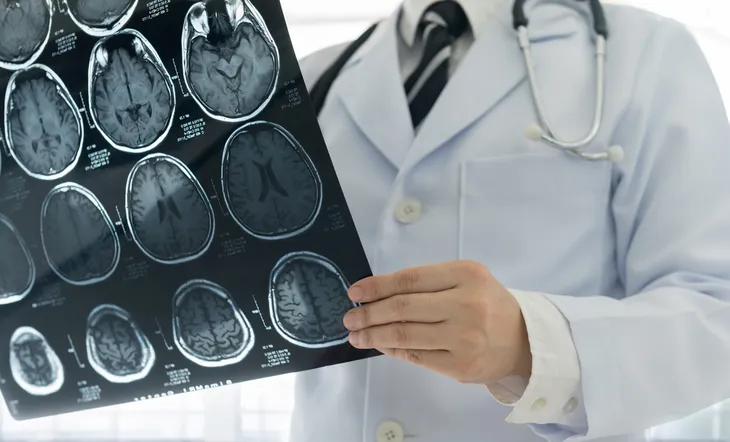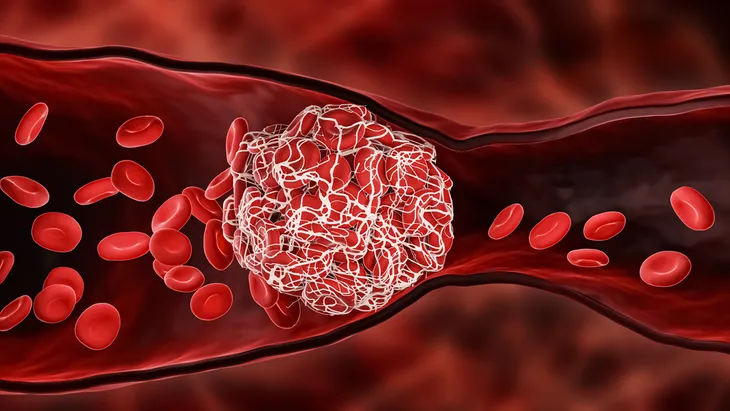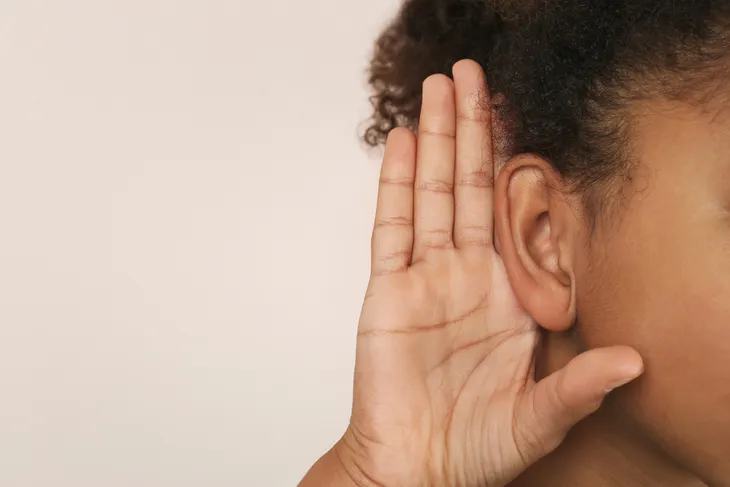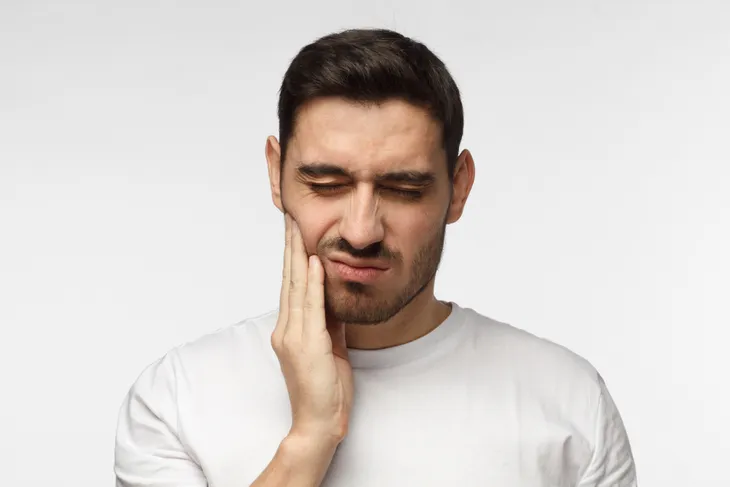- Tinnitus causes ringing or other noises in one or both of your ears. For some individuals, it can be downright debilitating.
- It’s often caused by exposure to loud noises but several health conditions can cause or worsen tinnitus such as brain tumors, blood vessel disorders, or otosclerosis.
- If you’re experiencing tinnitus and it’s disrupting your daily life, talk to your doctor.
Tinnitus is an annoying ringing in the ears that can be downright debilitating for some people. However, the reasons behind your tinnitus may not be easy to pinpoint, although in some cases a few adjustments can bring you relief from future symptoms.
While there are a number of treatments to turn down the volume of the symptoms of the condition, you may be able to zero in on the underlying triggers so you can avoid them in the first place. Here are 10 possible reasons you may be experiencing tinnitus…
Exposure to Loud Noises
Remember all those concerts you went to when you were younger? You may not remember all of them, but your eardrums do. “Prolonged exposure to excessively loud noise” is listed by Medical News Today as a possible cause of ringing (or buzzing, or a rushing water sound) in the ears.
You may want to be a little more aware of what loud music can do to your ears over the long term, and wear earplugs at concerts (or at least stay clear from the speaker systems). Try turning your powerful car stereo down once in a while (passengers and bystanders will probably appreciate this too). And finally, be mindful of how loud your headphones are.
Injuries
More specifically, head and neck injuries can lead to noise in the ears, according to Tinnitus Formula. The source notes that in a study of 2,400 tinnitus patients at the Oregon Health Science University, upwards of 12-percent reported a connection to a head/neck injury.
Tinnitus can be triggered by traumatic brain injury (resulting from a violent blow to the head), or whiplash (neck snapping back and forth in a violent motion) that can be caused by a car accident or even from a sports mishap, notes the source.
Diseases
Both diseases of the inner ear and elsewhere can cause symptoms of tinnitus, according to EMedicine Health. One ear disease called Meniere’s that can cause dizziness and a “fullness” sensation in the ear can also be accompanied by tinnitus, notes the source.
Meanwhile, the same source explains another disease called acoustic neuroma can also cause ringing in the ears. This disease is actually a type of brain tumor that develops on the nerve that supplies hearing. Often with this cause, you may only have tinnitus in one ear.
Vascular Issues
The Mayo Clinic says there are some blood vessel disorders that could be making some noise when it comes to your tinnitus symptoms. One of these disorders is atherosclerosis which develops when blood vessels near the ear lose elasticity. With this disorder, you might be able to hear your own heartbeat.
Other issues include narrowing of a neck artery that can cause “turbulent blood flow,” and malformation of capillaries between arteries and veins leading to tinnitus. The culprit can also include high blood pressure from hypertension, stress, or too much alcohol and caffeine adds the source.
Medications
Some of the medications you’re taking to treat other conditions might actually be triggering your tinnitus, at least according to Drugs.com. These medications include certain antibiotics, cancer pills, diuretics, and some antidepressants, notes the source.
Medications may cause or worsen symptoms of your tinnitus, and the problem will increase with a higher dose, the source warns. The good news is that if medications are the underlying cause of your tinnitus, it will disappear when you stop taking the particular drug. However, it’s best to talk to a doctor to find out if the medications you’re taking are causing tinnitus. You should never stop taking medications or change the dosage without the guidance of your doctor.
 novak.elcic / Shutterstock
novak.elcic / ShutterstockEarwax
When was the last time you cleaned out your ears? It could be a simple case of wax buildup in your ear canal (pushing against your eardrums) causing your tinnitus troubles.
However, be careful how you remove the wax — pushing a cotton swab into the ear canal has been advised against by experts through a number of sources, including Business Insider. You’re actually compacting the wax by doing this. In some cases, a doctor can remove the wax for you (or identify another problem, such as a foreign object in the ear).
Muscle Spasms in the Inner Ear
The tensor tympani and stapedius muscles in your inner ear protect your ears by dampening the sound of noises coming from outside the ear and inside your body. However, when these muscle spasms, “the result can be middle ear myoclonus (MEM), also known as MEM tinnitus,” says Healthline.
When the tensor tympani muscle spasms it produces a thumping or clicking sound. When the stapedius muscle spasms, it produces a buzzing or crackling sound. It’s important to point out, MEM tinnitus is rare, occurring in about 6 out of 10,000 people, notes the source.
TMJ
Dysfunction of the temporomandibular joint (TMJ) in the jaw can be a painful and uncomfortable thing to deal with on its own but can be made worse as it can trigger tinnitus, according to the American Tinnitus Association.
To help treat TMJ problems, dental treatment and bite realignment can be helpful, according to the source. A bite guard can also sometimes provide some relief from the stiffness and pain from TMJ, which may alleviate some of the associated symptoms as well.
Otosclerosis
Another cause of tinnitus is otosclerosis which is a condition “in which there’s abnormal bone growth inside the ear,” explains the National Health Service (NHS).
Three small bones located deep inside your ear vibrate when sound waves enter. They have the important job of transmitting sound waves to the inner ear and converting them into signals that are sent to the brain. When otosclerosis develops, “the stapes (“stirrup” bone) begins to fuse with the surrounding bone, eventually becoming fixed so it cannot move,” explains the source. As a result, the sound is no longer transmitting into your inner ear reliably, causing hearing loss.
Hearing Loss
We saved the biggest cause for tinnitus till the end. Hear-It explains, “Medical research in the past few years has shown that those who have tinnitus also have some form of hearing loss.” This can be a small or more significant loss of hearing, adds the source. A minor injury to the inner ear can result in “hidden hearing loss” that’s hard to detect with hearing tests but can still result in tinnitus, it explains.
Hearing loss can actually cause signals to be sent from the inner ear to the brain, resulting in tinnitus. In others words, you may be hearing “phantom” noises that don’t exist as a result. There are a number of factors that can cause hearing loss, including ear injuries, exposure to loud sounds (as mentioned before), and aging.
Risk Factors
Anyone can develop tinnitus, however, certain factors may increase your risk. One controllable risk is exposure to loud noise. Attending a loud concert and listing to music with headphones on high volume are just a couple of ways you can expose yourself to loud noise. Some individuals also work in loud environments such as factory workers, soldiers, musicians, construction workers, or individuals who have to maneuver heavy and loud equipment.
Another controllable risk factor is tobacco and alcohol use. The Mayo Clinic explains, smokers and individuals who drink alcohol also have a higher risk of developing tinnitus.
Finally, some factors are not within your control such as age and gender. The source says, “As you age, the number of functioning nerve fibers in your ears declines, possibly causing hearing problems often associated with tinnitus.” Men are also more likely to develop tinnitus.
Preventing Tinnitus
The Mayo Clinic points out that in many cases, tinnitus can be prevented. For starters, always wear hearing protection when you know you’ll be exposed to loud noises. This is especially important if you work in a loud environment.
Another effective way to help prevent tinnitus is to turn down the volume. “Long-term exposure to amplified music with no ear protection or listening to music at very high volume through headphones can cause hearing loss and tinnitus,” explains the source. You should also consider limiting your alcohol intake, and quitting smoking.
Finally, the source notes, taking care of your cardiovascular health can help keep your blood vessels healthy and prevent tinnitus that is linked to blood vessel disorders. To do this, exercise regularly and eat a heart-healthy diet.














